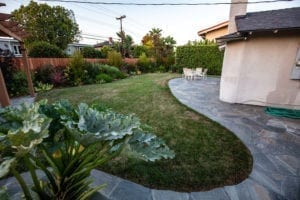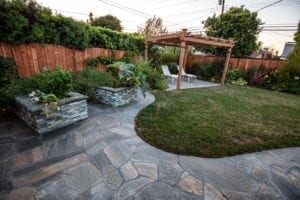Organic gardening is a method of agriculture that emphasizes the use of natural and sustainable practices to grow food. Organic gardeners avoid using synthetic pesticides, herbicides, and fertilizers, and instead focus on building healthy soil and using natural methods to control pests and diseases.
There are many benefits to organic gardening, including:

1. Healthier food
Organic food is often more nutritious than conventionally grown food, and it contains fewer pesticide residues.
2. Better for the environment
Organic farming practices help to protect soil and water quality, and they reduce greenhouse gas emissions.
3. Supports biodiversity
Organic gardens are home to a wider variety of plants and animals than conventional farms, which helps to create a more resilient ecosystem.
If you’re interested in getting started with organic gardening, here are a few tips:
1. Choose the right location
Your garden should be located in a sunny spot with well-drained soil.
2. Start with healthy soil
Organic gardeners focus on building healthy soil, which is essential for growing healthy plants. You can improve your soil by adding compost, manure, and other organic matter.
3. Plant a variety of crops
Planting a variety of crops helps to prevent pests and diseases from taking over your garden. It also helps to improve soil fertility.
4. Use companion planting
Companion planting is a technique that involves planting different crops together to help control pests and diseases. For example, planting basil next to tomatoes can help to repel tomato hornworms.
5. Attract beneficial insects
Beneficial insects, such as ladybugs and lacewings, help to control pests in your garden. You can attract beneficial insects by planting flowers and herbs that they like.
6. Use natural pest control methods
If you do have pests in your garden, there are a number of natural methods you can use to control them, such as handpicking, insecticidal soaps, and neem oil.
Here are some additional tips for organic gardening:
- Water your plants deeply and regularly.
- Mulch around your plants to help retain moisture and suppress weeds.
- Rotate your crops each year to help prevent pests and diseases.
- Harvest your crops regularly to encourage new growth.
Organic gardening can be a rewarding experience. It’s a great way to grow healthy food for your family and friends, and it’s also good for the environment.
Here are some specific tips for growing different types of vegetables organically:
1. Tomatoes
Tomatoes are a popular choice for organic gardens. They need full sun and well-drained soil. To improve soil fertility, add compost or manure before planting. Water tomatoes deeply and regularly, and mulch around them to help retain moisture and suppress weeds. Fertilize tomatoes every few weeks with a balanced organic fertilizer.
2. Peppers
Peppers are another popular choice for organic gardens. They need full sun and well-drained soil. To improve soil fertility, add compost or manure before planting. Water peppers deeply and regularly, and mulch around them to help retain moisture and suppress weeds. Fertilize peppers every few weeks with a balanced organic fertilizer.
3. Lettuce
Lettuce is a cool-season crop that can be grown in spring and fall. It needs full sun or partial shade and well-drained soil. To improve soil fertility, add compost or manure before planting. Water lettuce deeply and regularly, and mulch around it to help retain moisture and suppress weeds. Fertilize lettuce every few weeks with a balanced organic fertilizer.
4. Carrots
Carrots are a root crop that can be grown in spring and fall. They need full sun and well-drained soil. To improve soil fertility, add compost or manure before planting. Water carrots deeply and regularly, and mulch around them to help retain moisture and suppress weeds. Fertilize carrots every few weeks with a balanced organic fertilizer.
5. Beans
Beans are a warm-season crop that can be grown in summer and fall. They need full sun and well-drained soil. To improve soil fertility, add compost or manure before planting. Water beans deeply and regularly, and mulch around them to help retain moisture and suppress weeds. Fertilize beans every few weeks with a balanced organic fertilizer.

These are just a few tips for organic gardening. There are many resources available to help you learn more about organic gardening practices. With a little planning and effort, you can grow your own healthy and delicious food in your home garden without using chemicals.
To indulge more ideas, visit Top 20 Outdoor Living Room Ideas for Al Fresco Entertaining.




